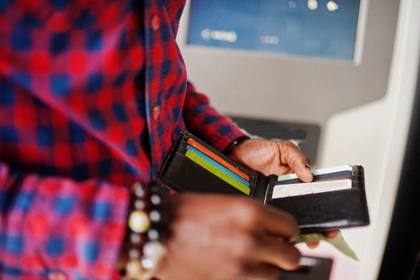Thinking about applying for a credit card in the UK? Whether it’s your first time or you just want a refresher, it helps to know what lenders usually ask for. Credit card requirements can vary depending on the provider, but most will need a few key bits of information.
Some providers might also ask for ID, like a passport or driving licence. If you apply for a credit card online, you might just need to enter the ID details rather than send copies.
How to apply for a credit card
In the past, you had to visit a bank branch with your documents to apply. But now, you can apply for a credit card online, which makes things quicker and easier.
You just fill out an online form, and in most cases, you’ll get a decision in minutes. Applying for a credit card has never been simpler!
What information do you need to apply for a credit card in the UK?
Before you start your application, it’s worth gathering a few details. Here’s what you might need:
Proof of income
Lenders want to see that you can afford to repay what you borrow. You’ll usually be asked how much you earn. Having a recent payslip nearby can help if you’re unsure of the exact figure.
Your address history
You’ll need to give your current address and where you’ve lived for the past three years. If you’ve moved a lot, check old emails or letters to help jog your memory.
Bank account details
Some credit card providers may ask for your bank account details, including your account number and sort code. This helps them verify your financial situation.
Your job details
If you’re employed, the form may ask for your employer’s name and address.
If you're applying for a credit card and you’re self-employed, you may be asked to provide details of your earnings for the past couple of years to show your income stability.
Proof of ID
You may be asked for ID like your driving licence or passport. Some lenders won’t need a physical copy of these if you apply online (just access to the details), but others will require sight of a physical copy.
Am I eligible to get a credit card?
Meeting the credit card requirements doesn’t always mean you’ll be accepted. Every credit card provider has different rules. These can include:
- A minimum income
- A good record of paying back money on time
- Living in the UK
- Being over 18
You won’t always know these rules before applying. But to get an idea of how likely you are to be accepted, try using an eligibility checker first. It tells you your chances without affecting your credit score.
Ocean Credit Card
See if it's a YES before you apply
- Up to £8,000 credit limit
- Checking won't affect your credit score
- Get a response in 60 seconds
39.9% APR
Representative (variable)
Intelligent Lending Ltd (credit broker). Capital One is the exclusive lender.

What if I’m turned down for a credit card?
Don’t worry – it happens! Being declined once doesn’t mean you can’t get a credit card. But it’s best not to apply again straight away. Every time you apply, it leaves a mark on your credit file. Too many applications in a short time can make lenders worry.
Here’s what to do:
- Take a break and check why you were declined
Look at the reasons provided by the lender (often included in your rejection notice). Common reasons might include missed payments, defaults, or too many recent credit applications. - Look at your credit report to see if anything’s wrong
You may have missed payments or had defaults that are still affecting your score. Regularly checking your credit report helps you stay on top of this. - Think about ways to build or rebuild your credit score
If missed payments, defaults, or a low credit score caused the decline, consider building your credit history with a credit-builder card, paying off any existing debts, or setting up reminders to stay on top of payments.
How to build your credit history
If you’ve had trouble getting credit before, a credit-builder card might help.
Start small:
- Spend a little each month
- Pay it off on time
- Don’t go over your limit
Doing this can show lenders that you’re responsible and might help you get other types of credit later, like loans or a mortgage.
Just remember – if you miss payments or go over your limit, it could hurt your credit score.
Disclaimer: We make every effort to ensure content is correct when published. Information on this website doesn't constitute financial advice, and we aren't responsible for the content of any external sites.






